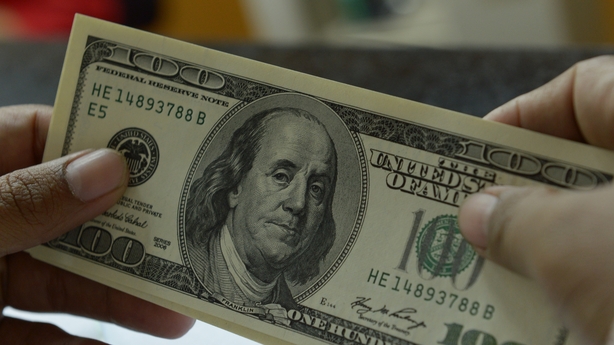The dollar slumped broadly this morning, falling to a five-month low against the yen, after US President Donald Trump helped accelerate its recent decline by saying the currency was too strong.
The currency took a heavy hit after Mr Trump told the Wall Street Journal that the dollar "is getting too strong" and that he would prefer the Federal Reserve to keep interest rates low.
The comments were a fresh reminder of the president's protectionist trade rhetoric, which has been a source of concern for dollar bulls.
"Trump's comments came at a time when some had begun to think that perhaps the president was not as supportive of a weak dollar as initially perceived," said Shin Kadota, senior strategist at Barclays in Tokyo.
"But he reiterated his view that a strong currency hurts U.S. competitiveness, adding fresh downward pressure on the dollar."
The US currency was 0.3% lower at 108.805 yen after stooping to a five-month low of 108.730.
In a bearish technical signal, the pair broke below its 200-day moving average of 108.75.

The dollar has shed 2% against the yen so far this week, with the safe-haven Japanese currency already on a bullish footing because of a rise in geopolitical tensions.
There are fresh concerns about the French presidential election and possible US military action against Syria and North Korea.
With investors viewing South Korea's sovereign notes as a riskier bet on the rising tensions, the premium for the country's credit default swap debt insurance has risen to a nine-month high.
That Mr Trump seemed unmoved by the significant weakening of the dollar against the yen already in place increased nervousness towards the US Treasury's semi-annual currency report due tomorrow, and next week's US-Japan bilateral dialogue.
"It appears that the Trump administration is trying to make up for its internal policy shortcomings with a show of force in external policy, leading to a confrontational stance with trade partners," said Daisuke Karakama, market economist at Mizuho Bank.
"Currencies rates and trade balance inevitably become themes to confront others countries with. So if you are in the forex market it requires a lot of courage to buy the dollar right now."
The euro rose 0.1% to $1.0669, not far from a six-day high of $1.0675 reached overnight.
The dollar lost significant ground against the pound and Swiss franc as well, and as a result the dollar index versus a basket of major currencies lost about 0.7% to a two-week low of 100.040.
The dollar is on track for its third straight day of losses against China's yuan, after rising to a one-month high at the start of the week.
The yield on the benchmark US 10-year Treasury note was at 2.234% after touching 2.221%, its lowest in nearly five months.

